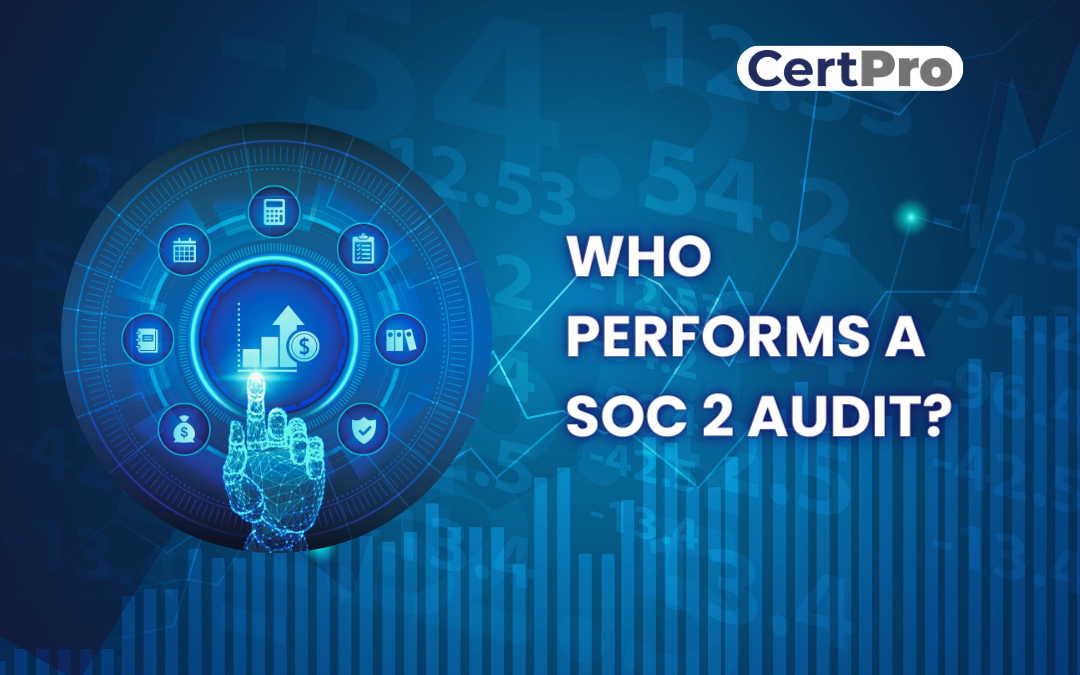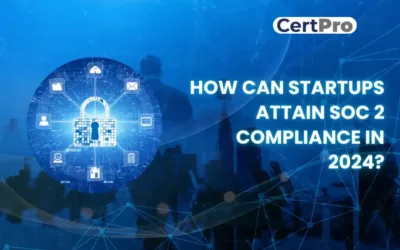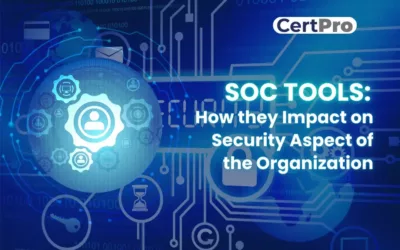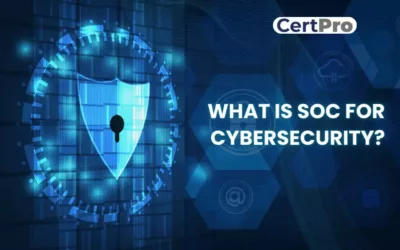Organizations are realizing more and more how important it is to protect sensitive data and systems in the ever-changing world of cybersecurity and data protection. The American Institute of CPAs (AICPA) developed the SOC 2 audit standard in response to this requirement. It is a foundational framework that is essential to the never-ending pursuit of improved security solutions.
The SOC 2 audit standard has become essential for businesses looking to strengthen their cyber defenses and guarantee the integrity of sensitive data as the digital world develops. This framework provides an extensive collection of standards and guidelines for assessing the confidentiality, availability, processing integrity, security, and privacy of data in a system. Organizations show their dedication to maintaining the highest standards of cybersecurity and data protection by adhering to the SOC 2 requirements.
SOC 2 is essentially a standard that gives organizations an organized way to evaluate and improve their security procedures. This encourages a culture of continuous development and flexibility in the face of changing cybersecurity threats. Adopting the SOC 2 audit standard highlights an organization’s commitment to upholding stakeholders’ trust and confidence in an increasingly interconnected world and demonstrates a proactive and strategic approach to managing the dynamic landscape of digital risks.
WHAT DOES A SOC 2 AUDIT MEAN?
One of the most important steps in the process is to undertake an audit in order to embark on a SOC 2 compliance journey. During this audit, a third-party assessor thoroughly examines your systems and processes to determine whether your security infrastructure satisfies SOC 2 requirements.
There are two types of SOC 2 audits: SOC 2 Type 1 and SOC 2 Type 2. SOC 2 Type 1 provides a snapshot of your security posture by analyzing your information security measures at a certain point in time. It’s a quick process that usually takes a few weeks to finish, and it’s affordable. SOC 2 Type 2, on the other hand, assesses the operational efficacy of controls over a longer time frame, usually three to twelve months. The Type 2 audit is more complex and expensive, but it offers a more thorough and continuous review.
The choice between SOC 2 Type 1 and Type 2 depends on a number of variables, such as the required level of assurance for consumers and stakeholders, the urgency of compliance, and budgetary constraints. While Type 2 is frequently preferred for its comprehensive and ongoing examination of security measures, providing a more strong, long-term compliance approach, Type 1 may provide a speedy answer for urgent compliance demands.
THE SOC 2 AUDIT PROCESS
Step 1: The SOC 2 Audit Process: The SOC 2 analyzing standard process begins with selecting between the SOC 2 Type I and Type II attestation reports. Assessing if systems are built in accordance with Trust Services Criteria is the main objective of SOC 2 Type I, which offers a speedier and more economical evaluation but less detailed data. SOC 2 Type II, on the other hand, requires a longer audit duration, maybe up to a year, but looks at both system design and functionality over an extended period of time, guaranteeing a more comprehensive review of compliance and security standards. Depending on the organization’s requirements for the required level of assurance and the depth of evaluation, one of the two options may be selected.
Step 2: Explain the audit’s scope: Companies should adhere to a defined procedure when starting a SOC 2 analyzing standard, which includes selecting the right attestation report type (SOC 2 Type I or SOC 2 Type II) according to their financial constraints and level of urgency. Determining the audit period, the relevant Trust Services Criteria (TSC) to be evaluated, and whether the audit will be undertaken at the company or service level are the next steps in establishing the audit’s scope. Important documents like asset inventories and business continuity plans are part of the documentation-gathering process. While details may differ, this procedure offers a general framework that offers a complete approach for firms getting ready for a SOC 2 assessment.
Step 3: Perform a Gap Analysis: Once all pertinent systems, controls, and documentation have been assembled, a gap analysis is a crucial next step in preparing for the SOC 2 analysis standard. This process involves comparing your existing practices with the requirements of SOC 2 compliance. By doing so, you can pinpoint any deficiencies in safeguarding customer data and formulate a remediation plan to address these gaps before the formal SOC 2 analyzing standard. By taking this proactive measure, you can make sure that your systems and controls meet the strict security requirements stated in SOC 2, which will improve your preparedness for the impending exam.
Step 4: Compile a list of requirements: A readiness evaluation is essential as part of the SOC 2 analysis of standard preparation. This entails a detailed assessment of your organization’s overall readiness for the audit process. Beyond the technological factors, the readiness evaluation looks at the effectiveness of policies, processes, and staff understanding of security measures. By completing this evaluation, you obtain insight into potential difficulties and areas that may require more attention before the official SOC 2 audit. This proactive strategy helps your firm to fine-tune its security posture and ensure a smoother and more effective audit experience.
Step 5: Auditor Selection: Choosing an accredited CPA to carry out the audit and provide the official report is the main goal of this step of the SOC 2 analyzing standard procedure. Making sure the chosen CPA firm is AICPA-affiliated, follows the most recent AICPA recommendations, and has relevant experience doing SOC audits for businesses in your industry and of a comparable size are important factors to take into account. Moreover, agree on the report type and evaluation period with the auditor. It is essential to comprehend the audit process, including the channels of communication and the procedures for submitting evidence. Finally, taking personality fit into account is crucial, particularly for a Type II report that calls for longer-term collaboration and on-site interactions. Careful consideration of these elements ensures that you select a qualified and compatible auditor, guaranteeing a positive SOC 2 analyzing standard experience.
Step 6: Start of the Formal Audit Process: The formal SOC 2 audit process spans several weeks to months, beginning with coordination between your team and the auditor. Before the audit starts, the auditor contacts you to explain the process, set a schedule, and gather initial information. During the on-site visit, the auditor starts the process by administering a security questionnaire, then proceeds to gather evidence and evaluate business processes and security practices. The audit may lead to follow-up requests for additional documentation or clarification. At the end, a comprehensive SOC 2 report is provided, detailing results and offering insights for addressing compliance gaps or exceptions. The report serves as a guide for enhancing security practices and demonstrating regulatory compliance.
ROLES AND RESPONSIBILITIES OF A SOC 2 AUDITOR
1. Analyzing the Controls of the Service Organization: Evaluating the internal controls that third-party service providers impose is a crucial duty of SOC auditors. Protecting client information, financial records, and intellectual property requires strict adherence to these standards. The examination by the auditor guarantees a strong defense system, creating a safe space that protects confidential data and maintains the integrity of financial and proprietary assets.
2. Preparing detailed SOC reports: The task of creating comprehensive reports that encompass the organization’s services, systems, and implemented controls falls on SOC auditors. The auditor’s assessment of the controls’ efficacy is included in these reports, which offer a thorough rundown of the company’s security and operating protocols.
3. Ensuring Compliance with AICPA Guidelines: SOC auditors, who act as AICPA representatives, make sure that service organizations follow the guidelines of the SOC audit type—SOC 1, SOC 2, or SOC 3—that they have selected. This entails painstaking verification to ensure compliance with the strict guidelines for thorough and efficient auditing procedures established by the AICPA.
4. Obtaining Expert Opinion: The auditor provides an informed opinion regarding the organization’s compliance with the standards outlined in the SOC framework following a thorough examination of the controls implemented by the service organization and an evaluation of their effectiveness. This well-informed evaluation is essential for determining how committed the business is to following legal and standard criteria.
5. Continuous Auditing Tasks: Depending on the particular SOC audit type, SOC auditors are required to reevaluate the system and controls on a regular basis. This continuous evaluation guarantees the safeguards in place will continue to be successful and will be in line with the Trust Services Criteria. This helps the organization remain resilient in meeting changing standards and preserving a safe operating environment.
6. Consultancy and advice services: SOC auditors regularly offer advice to businesses, helping them to comprehend and get ready for SOC audits. Additionally, they provide guidance on enhancing or putting controls in place, bolstering security measures, and guaranteeing adherence to industry standards. This proactive assistance strengthens a robust framework for corporate security and regulatory compliance.
SOC 2 AUDIT TIMELINE
When it comes to the initial SOC 2 analyzing standard, the full timeframe usually lasts for a full year. For organizations engaging in SOC audits for the first time, the preparatory phases may involve a readiness assessment, remediation initiatives, and document compilation. On the other hand, audits or renewals for organizations that have prior SOC 2 experience typically go more quickly. Since SOC 2 analyzing standard results are valid for a year, service businesses that are dedicated to maintaining the Trust Services Criteria must maintain continual compliance. Its cyclical character highlights how important it is to always keep regulations in line in order to support the security and integrity of data and services within the operational framework.
1. Audit Duration: A SOC 2 audit might take anywhere from five weeks to several months, depending on the report type and audit scope. Pre-audit planning, the chosen audit window, and the audit itself are the three main stages of the audit. Together, these successive phases aid in assessing and guaranteeing the efficiency of an organization’s information security measures and adherence to predetermined standards.
2. Preparation Time: A SOC 2 analyzing standard planning phase can last anywhere from two weeks to nine months. Initial efforts to ensure compliance usually need eight hours a week for eight weeks. During this time, tasks include documenting procedures, creating policies, and establishing processes. Companies that have already worked with SOC or information security frameworks might finish the process faster—two or three weeks at most. This variation emphasizes how important it is to adjust the preparation schedule based on an organization’s unique audit requirements and security policies.
3. Readiness Phase: A SOC 2 analyzing standard preparation phase takes two to five months to complete. Teams must decide which of the two SOC 2 Type I or Type II reports to use, which Trust Services Criteria to use, and how to thoroughly evaluate the systems that are in place at this critical point. This stage entails conducting investigative work to find holes in the SOC 2 requirements, which calls for strategic planning in order to successfully address and close. This all-encompassing strategy guarantees a thorough and proactive readiness process, bringing the firm into compliance with the strict requirements and standards outlined by SOC 2.
4. Audit Completion Time: A SOC 2 analysis standard conclusion usually takes place in one to three months. Following the preliminary phase, the audit moves quickly forward. Auditors conduct staff interviews, test security procedures, and carefully analyze paperwork before creating the official SOC 2 compliance report, which includes the auditor’s conclusion. This effective and targeted audit procedure ensures a thorough assessment of the organization’s compliance with set standards and criteria, providing insightful information about the strength of its information security measures.
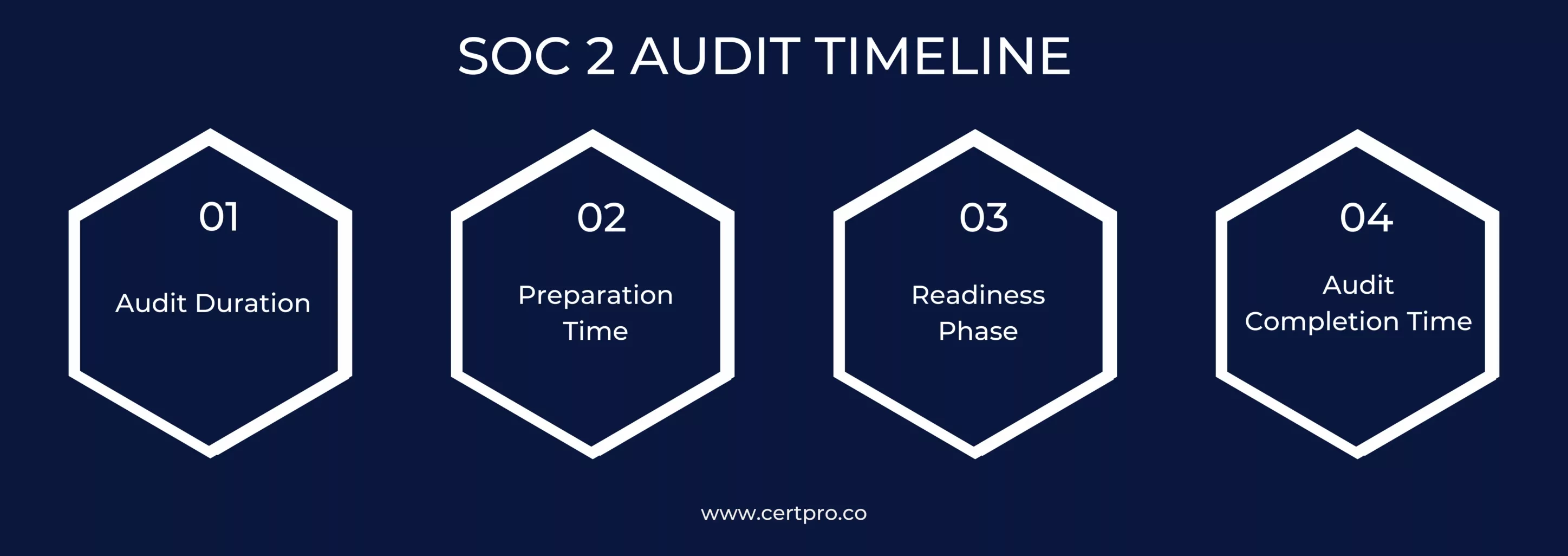
WHO CAN PERFORM SOC 2 AUDITS?
Qualified auditors or audit companies with certification and experience in information security, risk management, and compliance can conduct SOC 2 analysis. Professionals who follow the SOC 2 audit rules established by the American Institute of Certified Public Accountants (AICPA) are considered qualified to conduct evaluations. In order to fully assess an organization’s controls and procedures pertaining to security, availability, processing integrity, confidentiality, and privacy, this guarantees that the people or organizations tasked with conducting SOC 2 analysis have the necessary expertise.
1. AICPA: The largest professional accounting society in the world, the American Institute of Certified Public Accountants (AICPA), was founded in 1887. It covers a wide range of activities, including the economic, public, governmental, educational, and consulting sectors, and has over 430,000 members in more than 130 countries. AICPA is the primary body that regulates CPAs’ qualifications and audits; it is responsible for major compliance audits such as SOC 1 and SOC 2. Furthermore, the AICPA is essential to the training and certification of CPA professionals since it has put in place a strict procedure for evaluating and improving their abilities in accordance with industry standards.
2. Independent SOC 2 Auditors: Only AICPA-sanctioned audit firms and Certified Public Accountants (CPAs) are permitted to conduct SOC 2 compliance audits. CPAs are especially qualified for these audits because of their expertise in information security, which guarantees a sophisticated grasp of security issues. Absent any connections to the operations of the audited organization or to important decision-makers, independence is crucial. The stringent certification requirements set by the AICPA include 150 school hours, passing exams, relevant work experience, and ongoing professional development (CPE). States have the authority to set further CPA licensing requirements.
Successful candidates receive the CPA license upon passing the certification exam; however, to keep the license active, continuous CPE completion is required. In line with AICPA standards, these strict guidelines guarantee CPAs have the knowledge required for SOC 2 compliance audits. Auditors may effectively navigate the complex world of SOC 2 analyzing standards by combining specialized education, real-world experience, and ongoing learning. They can also adhere to industry-established standards and provide objective assessments for compliance-seeking firms. To guarantee the accuracy and dependability of the SOC 2 analyzing standard in protecting sensitive data and upholding regulatory compliance, selecting an independent and certified CPA is essential.
3. Internal Stakeholders: Information security and data management procedures must be thoroughly examined for the SOC 2 analyzing standard, which calls for independent CPA auditors to work closely with a range of internal stakeholders. These stakeholders include the IT department’s top executives, information security managers, server management specialists, internal legal experts, process documentation teams, and customer-facing positions. It is also possible to ask the CEO, CFO, and CTO of the company for their engagement. These internal stakeholders are important in helping auditors understand the organization’s policies, processes, and practical assessment of security measures for client data.
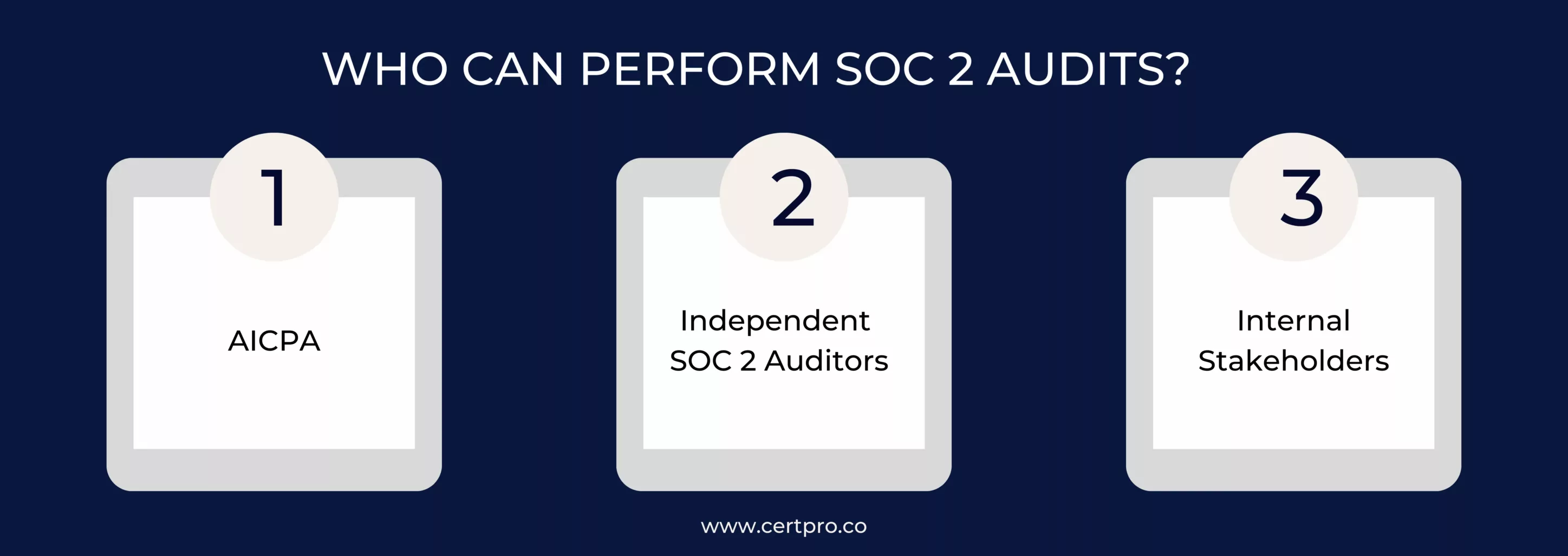
FAQ
What is the purpose of a SOC 2 audit?
A SOC 2 analyzing standard assesses an organization’s controls in security, availability, processing integrity, confidentiality, and privacy, providing assurance to stakeholders about compliance with industry standards for protecting sensitive information.
How does SOC 2 compliance contribute to cybersecurity?
SOC 2 compliance enhances cybersecurity by creating a framework for assessing and enhancing security procedures. It establishes controls to safeguard client information, financial records, and intellectual property, showcasing a commitment to a robust defense system and a secure data environment.
How long does a typical SOC 2 audit process take?
The duration of a SOC 2 analyzing standard ranges from five weeks to several months, encompassing pre-audit planning, the audit, and the creation of the official SOC 2 compliance report. Factors like audit type, scope, and organizational preparedness influence the timeframe.
How often should organizations undergo SOC 2 audits?
Organizations usually undergo the annual SOC 2 analysis standard to ensure continuous compliance with the Trust Services Criteria. Audit results are valid for one year, underscoring the need for regular assessments to uphold data and service security.
Can SOC 2 auditors provide consultation and advice to organizations?
SOC 2 auditors provide consultancy, aiding organizations in understanding and preparing for audits, offering guidance on control improvement, and ensuring adherence to industry standards. This proactive assistance builds robust security frameworks.

About the Author
SHREYAS SHASTHA DRUPADHA
Shreyas Shastha Drupadha, a Senior Business Consultant. Serving as an ISO 27001 Lead Auditor, Shreyas ensures the establishment of robust information security management systems. His expertise also encompasses GDPR, HIPAA, CCPA, and PIPEDA implementation.
HOW CAN STARTUPS ATTAIN SOC 2 COMPLIANCE IN 2024?
Trust is crucial for startups to do well in today's digital world. It's vital for establishing credibility with clients, especially in a data-driven environment where privacy is the main component. Therefore, getting a SOC 2 compliance report is crucial to building...
SOC TOOLS: How They Impact On Security Aspect Of The Organization
The changing cybersecurity landscape increases the importance of Security Operations Center (SOC) tools. Hence, it is essential for strengthening digital defenses and protecting against cyberattacks. SOC tools help security teams detect, monitor, and prevent security...
WHAT IS SOC FOR CYBERSECURITY?
In today's fast-paced digital landscape, ensuring robust cybersecurity measures is imperative for organizations aiming to protect sensitive data and maintain stakeholder trust. The American Institute of CPAs (AICPA) crafted the SOC for cybersecurity reporting...

